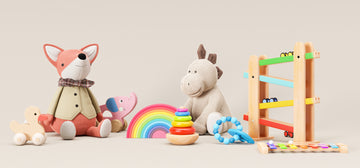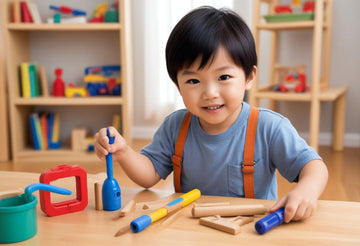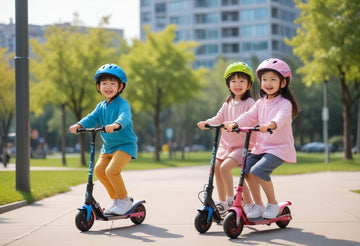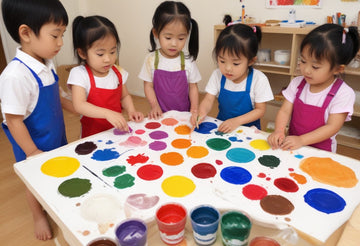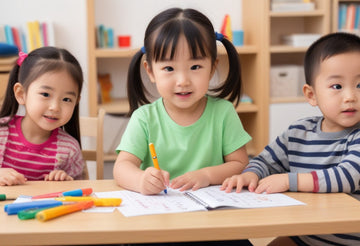Introduction
Children learn about the world by observing and imitating the people around them, especially their parents. Pretend play toys, such as kitchen sets, cleaning toys, and tool kits, provide an excellent platform for young kids to safely explore real-world activities. These toys help children understand everyday tasks, develop essential skills, and gain confidence—all while ensuring their safety. In this blog, we will delve into how pretend play toys facilitate learning and growth for young children.
Safe Exploration of Real-World Activities
Kitchen Sets
Children love to watch their parents cook and often want to join in. Kitchen sets allow them to safely mimic these activities:
- Learning Cooking Processes: Kids can pretend to cook and serve meals, learning about food preparation and cooking steps without exposure to hot stoves or sharp knives.
- Understanding Nutrition: They can explore different foods and ingredients, fostering an early interest in healthy eating.
Cleaning Toys
Cleaning toys let children imitate household chores, helping them understand the importance of cleanliness and responsibility:
- Safe Imitation: With toy brooms, mops, and vacuums, kids can engage in cleaning activities without handling hazardous cleaning chemicals or heavy equipment.
- Developing Responsibility: Pretend cleaning encourages a sense of responsibility and pride in maintaining a clean environment.
Tool Kits
Tool kits offer a safe way for children to explore building and fixing tasks, just like their parents:
- Hands-On Learning: Kids can use toy hammers, screwdrivers, and wrenches to "fix" things, enhancing their problem-solving skills and understanding of how tools work.
- Encouraging Creativity: These toys stimulate creativity as children imagine themselves as builders or engineers, working on various projects.
Cognitive and Motor Skill Development
Pretend play toys are instrumental in developing cognitive and motor skills:
- Problem-Solving: Figuring out how to assemble a toy kitchen or use a tool promotes critical thinking and problem-solving abilities.
- Fine Motor Skills: Handling small objects like toy utensils or tools improves hand-eye coordination and dexterity.
- Memory and Sequencing: Remembering and following the steps in a pretend recipe or cleaning routine helps enhance memory and sequencing skills.
Fostering Creativity and Imagination
Pretend play toys open a world of imagination and creativity for children:
- Role-Playing: Kids can experiment with different roles, such as a chef, cleaner, or builder, understanding various responsibilities and tasks.
- Inventing Scenarios: They create imaginative scenarios, enhancing their creative thinking and storytelling abilities.
- Language Development: Engaging in dialogue during pretend play helps improve vocabulary and communication skills.
Building Social and Emotional Skills
Pretend play is also crucial for social and emotional development:
- Collaboration and Sharing: Playing with siblings or friends teach cooperation, sharing, and turn-taking.
- Emotional Expression: Role-playing different scenarios helps children express and understand emotions.
- Boosting Confidence: Successfully completing pretend tasks boosts self-esteem and confidence in their abilities.
Practical Tips for Encouraging Pretend Play
To maximize the benefits of pretend play toys, consider the following tips:
- Provide a Variety of Toys: Offer different types of pretend play toys to keep playtime engaging and diverse.
- Join in the Fun: Participate in pretend play activities to provide guidance, encouragement, and enhance the learning experience.
- Create a Play-Friendly Environment: Designate a safe and accessible play area where children can freely explore and use their pretend play toys.
- Rotate Toys: Periodically rotate the toys to keep the play experience fresh and stimulating.
Conclusion
Pretend play toys like kitchen sets, cleaning toys, and tool kits are more than just entertaining—they are essential tools for learning and development. By providing a safe way for children to explore real-world activities, these toys help kids develop crucial cognitive, motor, social, and emotional skills. Encouraging pretend play not only fosters creativity and imagination but also allows children to follow and imitate their parents safely, building a strong foundation for future learning and growth. The next time your child pretends to cook, clean, or fix something, remember that they are engaging in valuable learning experiences that will benefit them throughout their lives.
